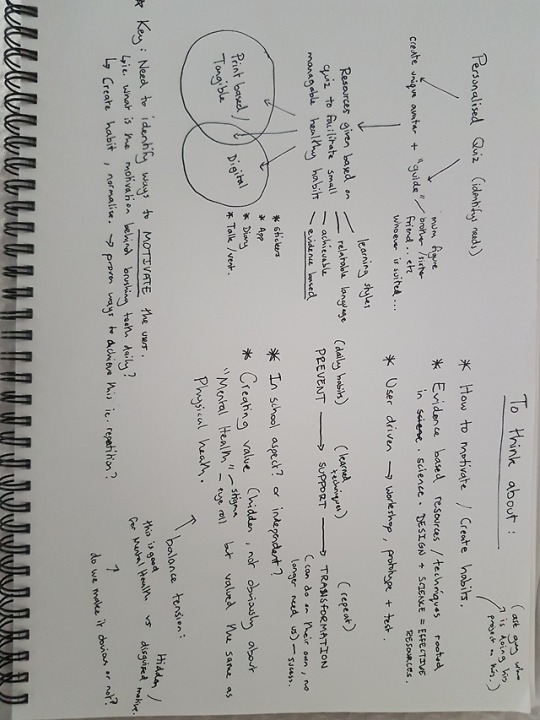Don't wanna be here? Send us removal request.
Link
0 notes
Link
0 notes
Text
My experience of co-liberate
I went to the Wellness Wananga session on Monday night and had no idea what to expect. First its important to note that I found out about co-liberate by searching it online and signing up through there. It was held from 5:30pm till 6:30pm at the preservatorium cafe on Webb street. When I entered I was greeted with a hug and smiling faces. I was offered peppermint tea and made small talk with the people already there. Of who i talked to they were regulars and had been coming to Wellness Wananga for over a year - (a bit daunting!) I dont think they get that many new faces... Anyway so we were all called to sit in this circle and make ourselves comfortable. There was probably 13 or so people in total with only one male and the rest female (though we mustn't assume gender as they quite rightly made clear at the start! lol) I would say age did range quite a bit but no-one would be under 21 and and no-one above 45 I would say. median age i would say would be late 20′s females. Anyway so at this point it was quite daunting as but calming at the same time as we all sat in this circle and had a few minutes of silence while we pondered the topic of the week: Perfectionism. The facilitator then invited you to chime in if you wanted with your name and what perfectionism means to you. This was basically the jist of the whole session. On reflection, I would say this did feel somewhat unintentionally elitist as everyone was so well spoken and “emotionally aware” and comfortable expressing themselves to strangers or so it seemed. It was a strange experience and definitely got me out of my comfort zone. I definitely think you have to be a certain type of person to get a lot of value out of a session like that and its not for everyone. I would describe it as calming but daunting, comfortable but also slightly judgey because it didnt flow like conversation where we could talk to each other it was more like say your piece with the slight mmming or laughter. I think theres definitely something valuable there in the way or connection and venting and a sort of community but for it to be suitable for young people i think it would need to be way more relaxed and everyday seeming.
0 notes
Link
0 notes
Link
I recently gave a TED Talk on "How to Practice Emotional Hygiene" ((link is external)View the short talk here(link is external)). If you don’t know what emotional hygiene is, don’t worry; most people don’t. Here’s a brief definition:
In much the same way that dental hygiene involves brushing our teeth and flossing every day, and personal hygiene involves cleaning ourselves and taking care of physical injuries when we sustain them, emotional hygienerefers to being mindful of our psychological health and adopting brief daily habits to monitor and address psychological wounds when we sustain them.
Currently, our general neglect of our emotional hygiene is profound. How is it we spend more time each day taking care of our teeth than our minds? We brush and floss but what daily activity do we do to maintain our psychological health?
I would argue the consequences of lacking emotional hygiene are much worse that lacking dental hygiene—after all, which would you rather lose, a tooth or your mind?
0 notes
Link
Only available on iphone so cant check it out properly but the design looks dated and a bit clunky
0 notes
Link
0 notes
Link
#art mental health#bell let's talk#christian sampson mental disorders#christian sampson photography#living
0 notes
Photo






Photo by rawpixel on Unsplash
Photo by Green Chameleon on Unsplash
Photo by Jake Oates on Unsplash
Photo by NeONBRAND on Unsplash
Photo by Hello I'm Nik on Unsplash
Photo by Sarah Cervantes on Unsplash
Photo by Ümit Bulut on Unsplash
0 notes
Link
Empathy in a Nutshell
Empathy is our capacity to relate to each other on a very fundamental level: to understand other people’s feelings and to take the perspective of the other person. Say a friend tells you how sad she is after splitting up with her partner. Your natural reaction will be to feel sad for her, to mirror her feelings. Or another friend shares with you how happy he is after finding a new job. You are then bound to feel happy for him. The best explanation of empathy I have found is the one below.
0 notes
Link
Daniel Goleman, author of "Emotional Intelligence," asks why we aren't more compassionate more of the time.
0 notes
Link
0 notes
Link
Abstract
Objective Lack of consensus on the definition of mental health has implications for research, policy and practice. This study aims to start an international, interdisciplinary and inclusive dialogue to answer the question: What are the core concepts of mental health?
Design and participants 50 people with expertise in the field of mental health from 8 countries completed an online survey. They identified the extent to which 4 current definitions were adequate and what the core concepts of mental health were. A qualitative thematic analysis was conducted of their responses. The results were validated at a consensus meeting of 58 clinicians, researchers and people with lived experience.
Results 46% of respondents rated the Public Health Agency of Canada (PHAC, 2006) definition as the most preferred, 30% stated that none of the 4 definitions were satisfactory and only 20% said the WHO (2001) definition was their preferred choice. The least preferred definition of mental health was the general definition of health adapted from Huber et al (2011). The core concepts of mental health were highly varied and reflected different processes people used to answer the question. These processes included the overarching perspective or point of reference of respondents (positionality), the frameworks used to describe the core concepts (paradigms, theories and models), and the way social and environmental factors were considered to act. The core concepts of mental health identified were mainly individual and functional, in that they related to the ability or capacity of a person to effectively deal with or change his/her environment. A preliminary model for the processes used to conceptualise mental health is presented.
Conclusions Answers to the question, ‘What are the core concepts of mental health?’ are highly dependent on the empirical frame used. Understanding these empirical frames is key to developing a useful consensus definition for diverse populations.
0 notes
Link
By Joichi Ito updated Nov 22, 2017
On Professor Neri Oxman’s Krebs Cycle of Creativity of the relationship between the disciplines, design and science are opposite one another on the circle, and the output of one is not the input of the other as is often the case of engineering and design or science and engineering. I believe that by making a “lens” and a fusion of design and science, we can fundamentally advance both. This connection includes both the science of design and the design of science, as well as the dynamic relationship between these two activities.
0 notes
